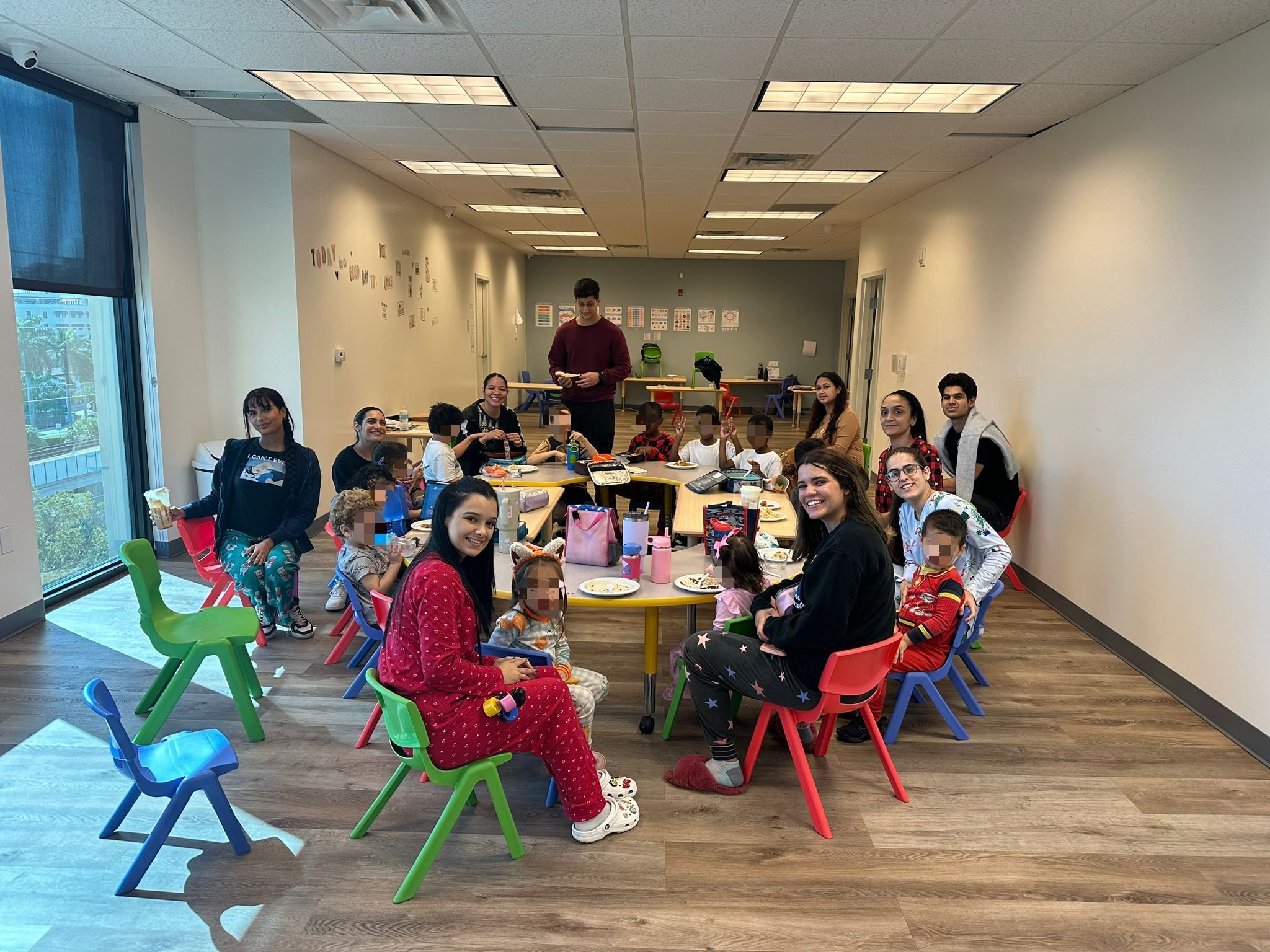
What is Applied Behavior Analysis (ABA)?
Applied Behavior Analysis (ABA) is the understanding and improvement of human behavior. ABA is a natural science approach to discovering environmental variables that influence socially significant behaviors. ABA is used to reduce maladaptive behaviors such as tantrums, aggression, self-injurious behavior, and increase functional and communication skills in children with developmental disabilities. It is an evidenced-based and a proven effect treatment for children with behavioral and developmental delays.
All services provided are 1 child-to-therapist ratio which is the model in ABA therapy.
Early Intervention Program
&
School Readiness Program
Clinic Based Full-Day Program
Ages 1.5- Up
About 25-35 hours a week.
Blossom’s Intensive early intervention program is designed to address developmental challenges in young children. Typically implemented before the age of five, this approach involves frequent, individualized sessions that focus on teaching essential skills, such as communication, social interaction, and adaptive behavior. Utilizing data-driven techniques, therapists work to reinforce positive behaviors while decreasing maladaptive ones, fostering significant developmental gains. The program often incorporates family involvement, ensuring that strategies are integrated into daily routines and promoting a supportive environment for the child's growth.
In intensive early intervention using Applied Behavior Analysis (ABA), several key developmental domains are targeted to promote comprehensive growth in young children.
1. Communication Skills: This domain focuses on enhancing both verbal and non-verbal communication. Interventions aim to develop language skills, including vocabulary acquisition, sentence structure, and pragmatic language use, as well as alternative communication methods like sign language or communication devices for non-verbal children.
2. Social Skills: Social development is crucial for fostering interactions with peers and adults. Interventions target skills such as turn-taking, sharing, understanding social cues, and building friendships. Activities often involve role-playing and guided interactions to encourage appropriate social behaviors.
3. Adaptive Behavior: This area emphasizes practical life skills that enable children to function independently. Skills targeted may include self-care routines (like dressing and toileting), following directions, and understanding personal safety. The goal is to help children navigate daily activities with increased independence.
4. Cognitive Skills: Early intervention also addresses cognitive development, promoting problem-solving, memory, and attention. Therapists may use structured play and instructional activities to enhance critical thinking and cognitive flexibility.
5. Motor Skills: Both fine and gross motor skills are important for overall development. Interventions may include activities that enhance coordination, balance, and dexterity, which are essential for tasks such as writing, drawing, and participating in physical activities.
6. Emotional Regulation: Teaching children how to recognize and manage their emotions is vital. Interventions focus on developing coping strategies, understanding feelings, and expressing emotions appropriately, which helps improve overall emotional well-being.
By targeting these interconnected domains, intensive early intervention in ABA aims to foster holistic development, ultimately leading to improved quality of life and greater success in social and academic settings.
Daycare
or
School Services
ABA therapy in schools involves applying principles of Applied Behavior Analysis to support students.The approach is tailored to meet individual needs, focusing on promoting positive behaviors, enhancing communication skills, and fostering academic success.In a school or daycare setting, Blossom collaborates with teachers and staff to develop individualized education plans (IEPs) that incorporate specific behavioral goals. We use techniques such as reinforcement to encourage desired behaviors, while also implementing strategies to reduce challenging behaviors. This might include creating structured environments, using visual supports, and integrating social skills training into daily routines.Data collection is a critical aspect of ABA therapy, allowing us to track progress and adjust interventions as needed. By embedding ABA strategies into classroom practices, Blossom aim to create inclusive environments where all students can thrive, enhancing both academic and social outcomes.Limitations:1. Resource Constraints: Schools may have limited resources, including staff training and availability of materials.2. Varied Expertise:Not all educators have extensive training in ABA principles, which can affect the quality of implementation.3. Time Restrictions: Schools often operate under strict schedules, which may limit the time available for individualized ABA services.Afterschool
Social Skills
Afterschool center based social skills is our program that is 1:1 child to therapy ration where Blossom targets socialization skills such as interpersonal relationships, play, and leisure skills as well as behavior reduction goals. Our program run 2-6pm.All services are individualized to the client.
Parent Training
1-2 hours a week
Parent Training is a service where Blossom teaches the caregivers the foundation of Applied Behavior Analysis, this service is also used to collaborate with other providers, to be help caregivers with behavior reduction by teaching them interventions, and to teach caregivers how increase Activities of Daily Living Skills at home. All services are individualized to the client.
Home Therapy
10-15 hours a week
Home Therapy is a service with 1:1 child to therapist ratio. Blossom targets all developmental Domains where the child has deficit. Primary focusing on Daily Living Skills ( personal, domestic, community skills), communication (expressive & receptive), and socialization ( play & leisure skills). in addition to behavior reduction goals through consequence based interventions.All services are individualized to the client.

Why Choose Center-Based Therapy For Your Child?
Children who receive center-based therapy learn more per hour than home-based therapy
Children who receive center-based therapy make more gains than those receiving services at home
Center-based therapy offers a more controlled environment with less distractions
Center-based therapy offers high quality and higher frequency of supervision
Center-based therapy offers generalization and maintenance of skills across people, settings, and behaviors
Center-based therapy offers constant opportunity for socialization





